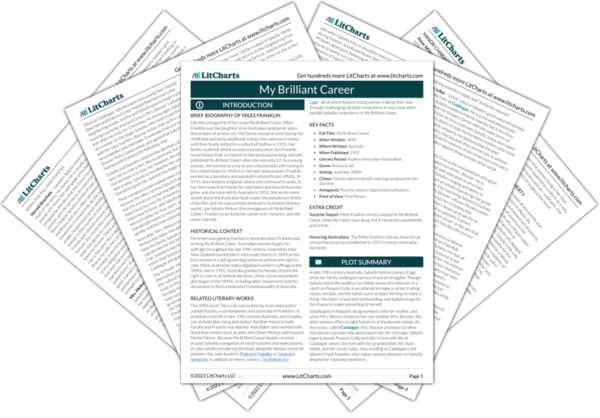Once again, marriage is depicted as a sacrifice made by women. Mrs. Melvyn’s white dress in the portrait symbolizes her youth and innocence, which she gave up for marriage. The three qualities that Sybylla notes Mrs. Melvyn sacrificing reveal as much about Sybylla’s values as they do about her perspective on marriage: she prioritizes her own “youth, freedom, [and] strength” to give them up for a man. The photograph of Mr. Melvyn is a reminder of poverty’s degrading effects, and comparing it to Mrs. Melvyn’s portraits draws a comparison between the struggles of poverty and the oppression of marriage.
